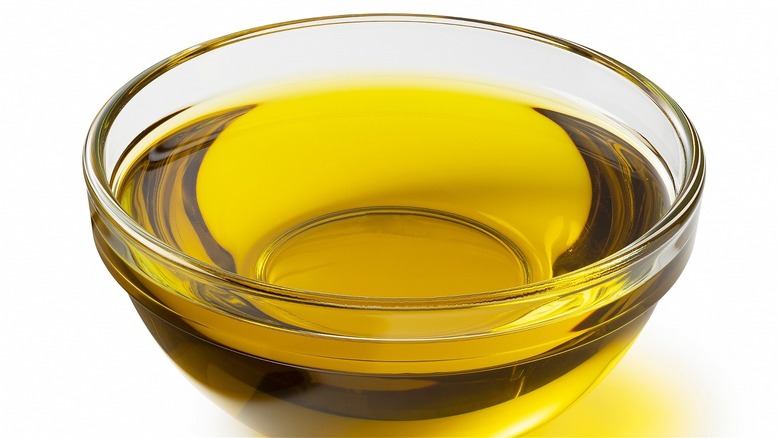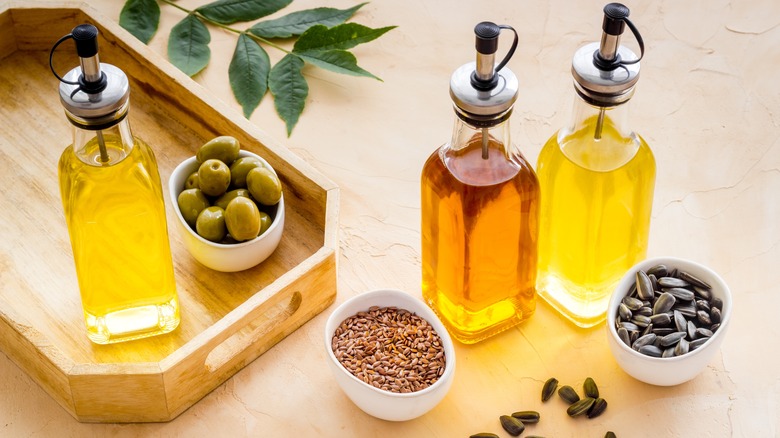When (And When Not) To Use A Neutral Oil
Look closely as you stroll down the cooking oil aisle at the supermarket, and you might be surprised at how many different types of oil are available these days. With options ranging from familiar vegetable and olive oils to less common varieties like coconut, peanut, or avocado oils, it can lead to lots of second-guessing by home cooks.
An important subgroup of cooking oils is those considered neutral oils. This includes any oils that have very little or no taste of their own, allowing them to be used in various recipes without imparting any additional flavor. Some examples are vegetable oil blends, corn oil, canola oil, grapeseed oil, sunflower and safflower oils, soybean oil, and sometimes peanut oil.
This ability to provide the characteristics of a high-quality oil without adding any taste is the primary reason for their use. That's why they're often used in baked goods and recipes with lighter or more delicate flavors. Many neutral oils also have a higher smoke point due to the extra level of refining that removes impurities along with much of the flavor. This makes neutral oils a far better choice for high-heat recipes that involve frying, sautéing, searing, or grilling. They're also generally cheaper, longer-lasting, and readily available nearly anywhere food is sold.
Taking sides with non-neutral oils
However, there are plenty of times when neutral oils should be left on the shelf and swapped out for more flavorful fats. Non-neutral oils are less refined, allowing them to retain their flavor and unique characteristics so that they can shine as featured players in a recipe. Some examples include virgin and extra virgin olive oil, sesame oil, walnut oil, and some styles of coconut oil or peanut oil. Olive oil commonly features in Mediterranean food, while sesame oil provides a nutty Asian flair to any recipe.
It should be noted that those choosing oils based on their health benefits have options in both categories. These include extra virgin olive oil, flaxseed oil, and avocado oil, all of which are rich in omega-3 and omega-9 fatty acids. These compounds have been linked to improved mental and heart health, as well as reduced inflammation and lower weight.
Like many aspects of cooking, some trial and error is involved in finding the right oil for general use and for specific recipes. Home chefs will benefit from having several varieties on hand to ensure they're always ready, whether they're deep-frying or adding a fresh and flavorful finishing oil.

